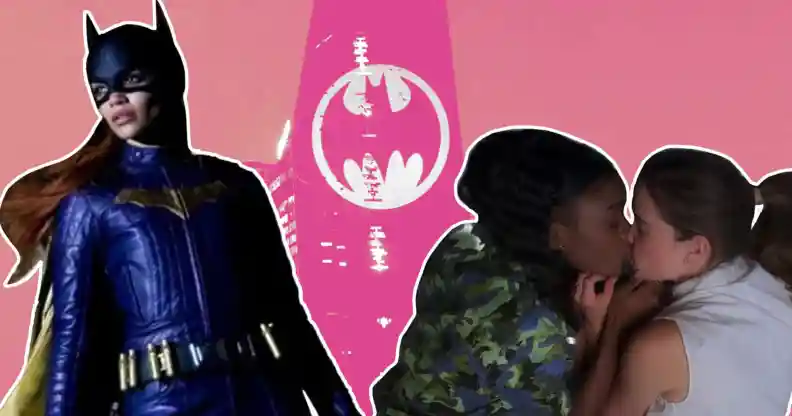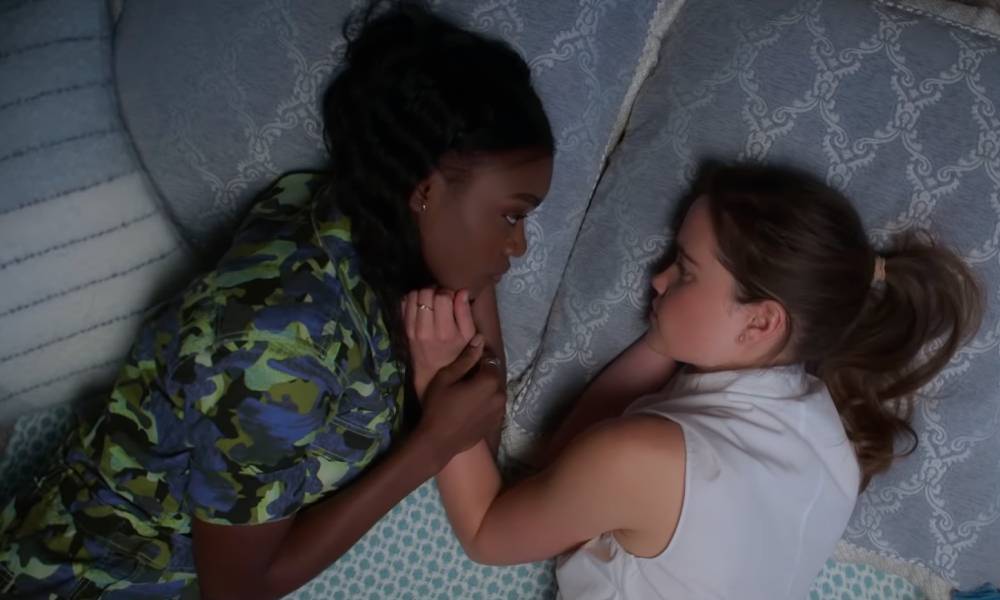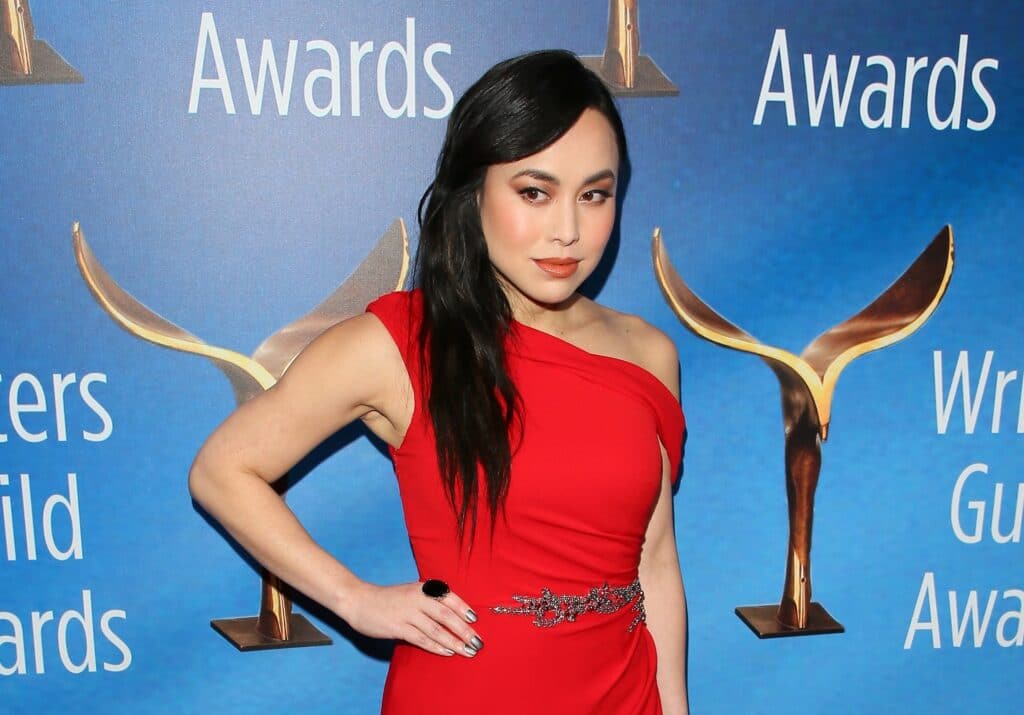Batgirl and First Kill being cancelled proves that Hollywood doesn’t care about queer women

Time and again, women across the LGBTQ+ spectrum have been let down by the TV and film industry (HBO Max/YouTube/Netflix/PinkNews)
When news broke that Batgirl, the first DC live-action movie to feature an openly trans character, had been cancelled, all I felt was resignation.
For Batgirl, the excitement after Filipina trans actor Ivory Aquino was cast as Alysia Yeoh was palpable. She was set to star alongside American-Dominican actor Leslie Grace (In The Heights) as Barbra Gordon.
The film would have set an important precedent in the superhero world – that trans characters can play meaningful roles that go beyond their identity.
Until it was cancelled, that is.
It was only hours later that Netflix announced its sapphic fantasy show First Kill had not been renewed for a second season.
The show saw a vampire, Juliette (Sarah Hook), and monster-hunter, Calliope (Imani Lewis) throw caution to the wind as they embarked on a romance.
With Imani a rare Black female lead in the fantasy world, fans were full of praise and grateful to finally see a diverse sapphic relationship within a coming-of-age drama.
Tracking sites report that the show racked up more viewing hours than Heartstopper – which has been renewed for another two seasons – yet it’s First Kill that has been cancelled.
Only last week, Amazon Prime’s cult queer show The Wilds was, you guessed it, cancelled. Before that, DC series Batwoman which featured a queer female lead. Before that, the wildly popular Netflix series Julie and the Phantoms.
Before that? Well, if I carried on we would be here all day.

First Kill follows the developing relationship between teen vampire Juliette (Sarah Catherine Hook) and Calliope (Imani Lewis), a young monster hunter. (YouTube/Netflix)
Time and again, women across the LGBTQ+ spectrum have been let down by the TV and film industry, and there’s no time to be angry before the cycle starts again.
What’s particularly concerning is that for the majority of the shows and films mentioned above, the leads have more often than not been women of colour.
This is even more frustrating when we (rightly) see shows such as Heartstopper and Young Royals comfortably renewed, which both centre around white cis queer male couples (though Heartstopper notably has made a star of Yasmin Finney, a Black trans woman).
Representation of queer women has consistently fallen short on in TV and film, whether we are doomed for trauma and death (think Buffy, The 100) or over-sexualised for the male gaze (Blue Is The Warmest Colour).
Trans women specifically have also been mistreated by Hollywood, as the excellent documentary Disclosure explains. Historically, they have been exclusively cast as the villain (CSI and Silence of the Lambs), the butt of the joke (Jim Carrey’s Ace Venture: Pet Detective), or dying tragically (The Danish Girl).
Things are changing slowly, but even in recent times, shows with fleshed out trans characters such as Sense8 have been – yep – chopped due to low viewing figures.
Projects like Batgirl and First Kill gives the industry a chance to reinvent its narrative, not only showcasing representation but connecting with audiences who are looking to understand themselves and their role in the world.

Ivory Aquino would have been playing Alysia Yeoh in Batgirl. (Getty)
While viewing figures are nice, surely shaking up the status quo counts for something? As companies focus on profit over people, they risk losing devoted fan bases and forgetting the purpose of art, which is to challenge and innovate.
Over the years LGBTQ+ representation has gotten better. We only need to look at Billy Porter’s Anything’s Possible on Amazon Prime, which features a trans lead, or Hunter Schafer as Jules in HBO’s Euphoria.
And there are uplifting stories where fans have rallied together to save diverse television. When Netflix cancelled One Day At A Time, a sitcom about a Latinx family that featured a relationship between a woman and non-binary person (Elena and Syd), it was picked up by a new company. Right now, there’s a fan campaign to save Amazon Prime Video’s The Wilds.
But putting the burden on fans from marginalised communities to justify why we should exist on the screen is exhausting.
It is time for the industry to step up, put people over profit and win back the trust of the LGBTQ+ community.

